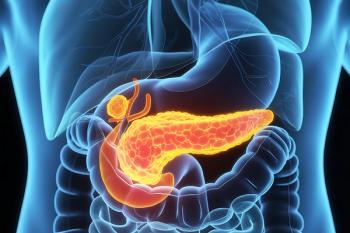
New Pediatric Growth Hormone Therapy Costs $8,300 Monthly
Longer-acting growth hormone reduces frequency of injections. It will be available in August.
Pfizer and OPKO Health’s new pediatric growth hormone treatment, Ngenla (somatrogon-ghla),
Ngenia, which will be available in August, is a once-weekly, human growth hormone analog for pediatric patients 3 years and older who have growth failure due to inadequate secretion of endogenous growth hormone. The price is generally in line with other once weekly growth hormone treatments, the spokesperson said.
“The price of Ngenla reflects Pfizer’s long-standing commitment of bringing exceptional value to our payer customers in the rare disease space. We are committed to continuing to work with our payer customers on partnerships to help ensure access to Ngenla for patients who need it,” the spokesperson said.
Pfizer is committed to working in collaboration with a variety of stakeholders, including healthcare providers, advocates, policymakers, and payers, to help ensure access for patients, the spokesperson said. Additionally, the company is committed to “helping patients access the treatments they need and there will be copay savings and patient assistance programs to help achieve this. Through the Pfizer Bridge Program, eligible patients will be able to get support with access to Ngenla.”
Ngenla offers a new treatment option for children living with growth hormone deficiency. “Currently the standard of care is a once-daily injection administered subcutaneously. It is estimated that up to two-thirds of children with GHD may miss more than one daily dose per week. The inclusion of Ngenla in the treatment paradigm enables children to reduce treatment frequency from once-daily to once-weekly injections, thus minimizing the treatment burden for children that can lead to treatment nonadherence,” the spokesperson added.
“The approval of Ngenla will be significant for children with growth hormone deficiency in the U.S. It holds potential to reduce the treatment burden that can come with daily growth hormone injections,” Joel Steelman, M.D., pediatric endocrinologist at Cook Children’s Health Care System, said in the Pfizer
FDA’s approval is supported by results from a multi-center, randomized, open-label, active-controlled phase 3 study which evaluated the safety and efficacy of Ngenla when administered once-weekly compared with once-daily somatropin (Serostim). The study met its primary endpoint of Ngenla non-inferiority compared with somatropin, as measured by annual height velocity at 12 months. Ngenla was generally well-tolerated in the study and had a safety profile comparable to somatropin, Pfizer said.
Ngenla is also approved to treat pediatric growth hormone deficiency in more than 40 markets including Canada, Australia, Japan, and EU member states.
Newsletter
Get the latest industry news, event updates, and more from Managed healthcare Executive.

























